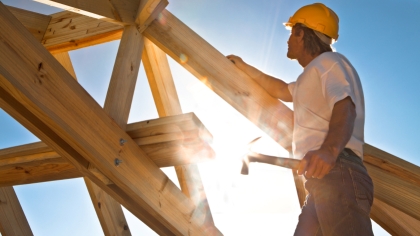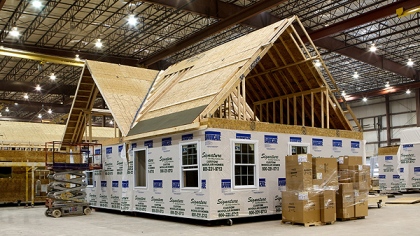Construction Loan Center
Understanding How Construction Loans Work

Do you have a dream to build your home from the ground up?
Have you seen a deal on a builder's closeout lot?
Have you recently inherited a piece of land upon which you would like to build your dream home?
Then you have come to the right place for finding a solution!
If your objectives sound similar to the questions noted above, let's take a step back to figure out to pay for this lofty objective. Unless your checking account has a balance of 6-figures or more, you will need to be vigilant and prepare for the financing before you break ground.
What is a Construction loan?
A construction loan is a type of mutually agreed upon contractual obligation, a mortgage that is specifically designed for those who need to finance the construction of their new home. As the homebuyer (or borrower) it is a prudent idea to reach out to a construction loan specialist as soon as you begin to seriously consider building a home to meet your needs. Construction loan specialists often possess insight and experience that is helpful as you begin to refine your thinking and narrow down your choices during early construction stages.
How much will I be qualified for?
The loan amount that you will be qualified for is essentially determined by the estimated value of the construction project, in the future, when completed. The home's anticipated value is verified by a licensed appraiser. The appraiser provides the initial appraisal, a 'subject-to' appraisal. In it, he gives his opinion of value (in accordance with USPAP Standards) based upon the planned home's plans and specs, site inspection and construction details. A final inspection must be completed after the construction to verify that the home was built as planned; only this appraisal is given with a designation of 'as-is'.
How are the Construction Loan Amounts and Payments Calculated?
During the construction phase, the builder must follow the 'bank approved' construction schedule. It should be noted that lender's frown upon builders that deviate from these pre-determined time frames.
You can find a construction loan calculator as well as a construction loan payment calculator here, which will help you figure out how a construction loan amount and its payments are calculated.
As construction passes through its traditional phases, the builder will correspond with the borrower by providing a written acknowledgment of the progress being made regarding the construction. These written updates are typically used as an invoice that you can bring to the lender to request a draw from the loan. Typically, however, your lender will send a bank representative to inspect the project to verify that the written progress (noted by the builder) matches the actual construction.
A borrower's monthly payment for a construction loan is usually an 'interest only' payment that is due on a monthly basis. However, it is important to note that the interest charged is strictly based upon the outstanding balance of the funds the lender has paid out to the builder, not the total construction loan limit. For example:
Total Construction Limit: $300,000
Current Outstanding Balance: $100,000
The interest due would be contingent upon $100,000 (the outstanding balance) as well as the current interest rate.
What are the Traditional Phases of Building a Home?
As a general guideline, there are five stages that define the construction of a home. they are:
1. Foundation
2. Frame and Brickwork
3. The Windows, Doors, and Insulation
4. The Electrical, Plumbing, Kitchen Cabinets, etc.
5. The Completion
As a general rule, the percentage of the maximum construction loan given for each draw is approximately 15-20% of the entire budget.
What are some common mistakes people make when financing the construction of their new home?
Mistakenly securing a traditional mortgage for your yet to be built stick-built home, that will be of no use if you are building a home
Forgetting to verify that the predetermined bank-approved payment schedule aligns with the builder's time frame.
Overspending during the construction which then exceeds the maximum loan limit.
How can you protect yourself from the known construction financing issues?
Before you sign a contract, confirm the following provisions are in the contract, if at all possible:
Allow the borrower to cancel contractual obligations if the financing falls through
Remove the land being bought, while awaiting a financing approval
Investigate any item of the construction loan that you do not understand, or feel uncomfortable about.
Remember: Do-it-yourself-ers can cause more problems (than money saved) trying to negotiate this complex financial process.






